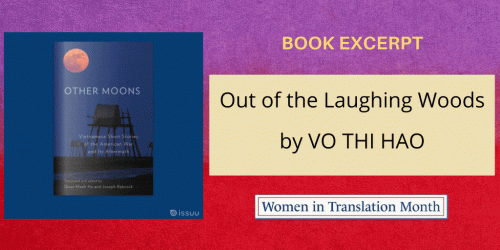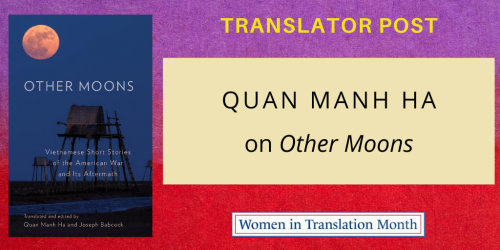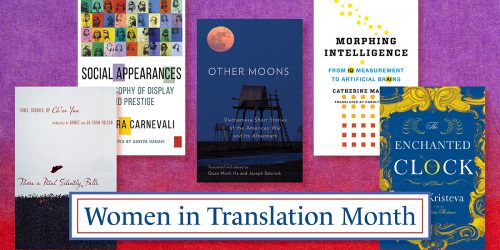Taking the Risk to Translate as Our Intelligence Morphs
By Carolyn Shread

“Malabou, with her characteristic clarity and insight, radically redraws the lines between humans and machines, brains and computers. Morphing Intelligence is a major achievement and not to be missed.”
~Adrian Johnston, author of A New German Idealism: Hegel, Žižek, and Dialectical Materialism
In observance of Women in Translation Month, this week we are featuring Morphing Intelligence: From IQ Measurement to Artificial Brains, by Catherine Malabou and translated by Carolyn Shread. In today’s guest post, Shread offers our readers an inside look into translating this work.
Read on to learn more, and remember to enter this month’s book giveaway for a chance to win a copy of this book!
• • • • • •
It’s a risky business, publishing translations. Risks abound: for the editor who decides to place their bet on the book; the author, handed over to the voice, language, place, and time of another; for the reader, irremediably suspicious or oblivious; and, too, for that notorious character, the translator.
As a translator, let me take the risk here of naming my own nemesis: the machine translator. The artificial intelligence that, drawing on the hours labored by my fellow translators like a vampire sucks blood, produces in an instant, a mere click, an ever more refined translation. Pulling out of the hat a communication miracle in human exchange. Along with my death sentence.
“As a translator, let me take the risk here of naming my own nemesis: the machine translator.”
I have to name this existential threat and dare to take the risk of discussing it here in the heart of my vocation—the publishing house—because if we, the translators, don’t, we’ll simply disappear, slip into the algorithm, so to speak.
Translator: as obsolete as the miner or machinist?
In the digital revolution we are living, now in accelerated COVID form, even our words are moving into mass production. Just as we have abandoned the glorious art of map reading to follow the synthetic voice of our choosing in the GPS, just as we have farmed out to our cell-selves the effort of recalling the phone numbers of our social network, so too in the palm of our hand we have the app that seemingly renders my work an anachronism.
So I needed Catherine Malabou’s Morphing Intelligence and translated it all the more painstakingly, joyfully, reflectively as the practice of translating morphs all around me. What, indeed, will we do with our brain? And what will our brain become? We know that translators’ and interpreters’ brains are different—that neurologically their mapping reflects their plasticity—so how will the advent of translation technology affect us? Are we fated to become the monolingual mind? Or will we maintain the place of languages, the synapse that sparks creative innovation, the gap that forces us to reach across our humanity for understanding? As we adapt and mesh with machines, impelled by the logic of global capitalism, what place is there to keep the sacred space of language alive? That quintessential capacity of the human to deploy our intellect in and through language?
“As we adapt and mesh with machines, impelled by the logic of global capitalism, what place is there to keep the sacred space of language alive?”
In Catherine’s work I find these questions and follow her rigorous reasoning that never abandons the rudder of sensibility. As she charts a history of intelligence, she helps us open ourselves to our future brain. Perhaps I never needed a book more. And don’t we all, as we strain to keep up with this revolution whose speed outstrips all others—and faster still now as COVID imperatives draw us all further into screen space?
Meticulously tracing the roots of our intelligence, Catherine Malabou gives us a forum in which to gather. She brings us to a place not of mastery, control, and closure but where we let go because it is precisely the mastery of the machine that is intolerable and our plasticity that shapes the future.
I’ll take the risk of saying it: the publisher might be tempted, ultimately, by the ease, efficiency, and, above all, economy of the machine, but what does a machine have to say about its translations? Nothing. Not yet.








